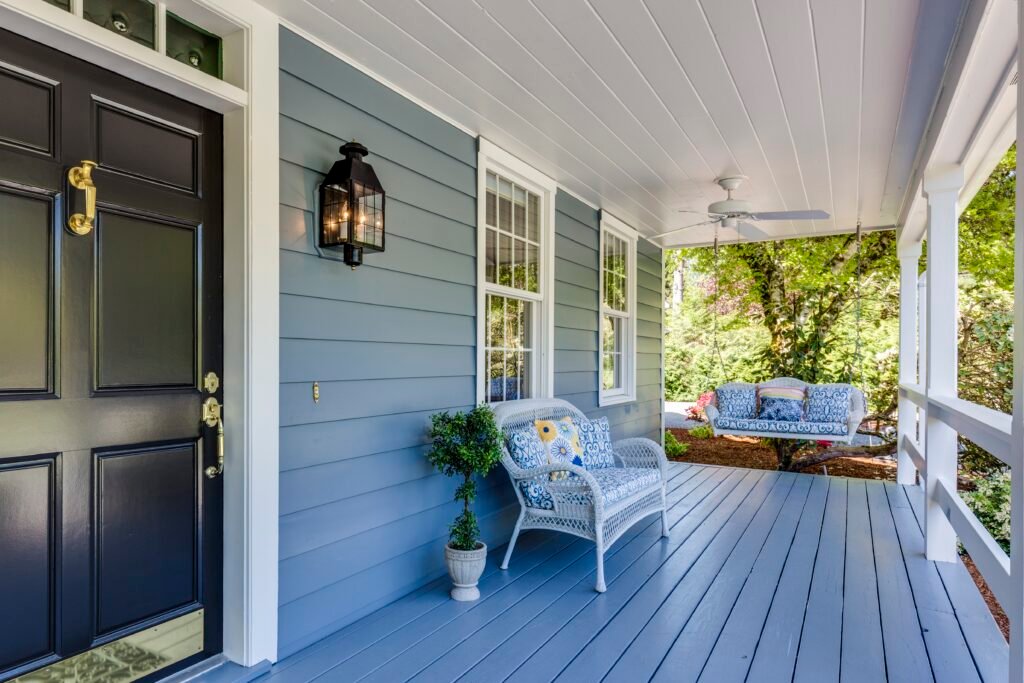Thinking about investing in the South African property market but not sure where to begin? Look no further, because this beginner’s guide will provide you with all the essential information you need. From understanding the current market trends to tips on finding the right location, this article will equip you with the knowledge to navigate the South African property market with confidence. Whether you’re a first-time buyer or an experienced investor, this guide will help you make informed decisions and embark on a successful property journey in South Africa.

Understanding the Basics
Types of properties in South Africa
When it comes to properties in South Africa, there are various types to consider. This can include residential properties such as houses, apartments, and townhouses. Commercial properties like office spaces, warehouses, and retail shops are also prevalent. Additionally, there are agricultural properties, which are often found in rural areas and used for farming or livestock. Each type of property comes with its own advantages and considerations, so it’s important to understand the differences before making a decision.
Legalities involved with property ownership
Property ownership in South Africa is governed by specific legalities. One important document to be aware of is the title deed, which proves your ownership of the property. It’s crucial to ensure that the property you’re interested in has a valid and registered title deed. Additionally, there might be restrictions on property usage in certain areas, so it’s important to familiarize yourself with any zoning or land use regulations. Consulting with a legal professional can help you navigate through these legalities and ensure a smooth and legal property ownership process.
Importance of property location
When it comes to real estate, location plays a vital role in determining the value and desirability of a property. South Africa offers a diverse range of locations, each with its own unique features and benefits. Factors such as proximity to amenities, schools, transportation, and safety should be taken into consideration when choosing a property location. It’s also worth considering the potential for future development, as this can impact property values over time. Conducting thorough research on different areas and consulting with local experts can help you make an informed decision about the ideal location for your property.
South African Property Law
Light on constitutional rights on property
South Africa’s constitution recognizes and protects property rights, providing a foundation for property ownership and investment. The Protection of Property Rights Act ensures that property owners are protected from arbitrary deprivation of their rights, except in certain limited circumstances. This constitutional protection gives property owners a sense of security and confidence in their ownership rights.
Role of the Deeds Office
The Deeds Office plays a crucial role in property transactions in South Africa. It is responsible for the registration, management, and maintenance of property ownership records. When a property is bought or sold, the transfer of ownership must be registered at the relevant Deeds Office. This ensures that the transaction is legally binding and that the new owner’s rights are protected. It is important to work with a qualified conveyancer who understands the processes and requirements of the Deeds Office to ensure a smooth transfer of ownership.
Responsibilities of a property owner
Owning a property comes with certain responsibilities. Property owners are responsible for maintaining their properties, ensuring they are safe and habitable. This includes regular maintenance and repairs, as well as compliance with any building codes or regulations. Property owners may also have financial responsibilities such as paying property taxes and insurance premiums. Understanding and fulfilling these responsibilities is essential to protect your investment and ensure a positive property ownership experience.

The Buying Process
How to find property for sale
Finding the right property for sale can be exciting but also overwhelming. There are several ways to search for properties in South Africa. Online property portals and real estate websites are popular options for finding listings. Estate agents can also provide valuable assistance in finding suitable properties that meet your requirements. Additionally, attending property auctions and exploring local neighborhoods can lead to potential opportunities. It’s important to be patient, do thorough research, and consider working with professionals who can guide you through the buying process.
Choosing the right estate agent
A good estate agent can be a valuable asset when it comes to navigating the property market. When choosing an estate agent, consider their experience, reputation, and knowledge of the local market. Look for an agent who listens to your needs, communicates effectively, and provides transparent and honest advice. Taking the time to research and interview multiple agents can help you find the right person to represent your interests and assist you in finding the perfect property.
Making an offer and closing the deal
Once you have found a property you are interested in, it’s time to make an offer. It’s important to conduct a thorough inspection of the property and consider factors such as the condition, location, and market value before making an offer. Your estate agent can guide you on the appropriate offer amount and negotiate on your behalf. Once the offer is accepted, the necessary legal processes begin, including obtaining a valid title deed and transferring ownership at the Deeds Office. Working closely with your conveyancer and estate agent during this stage will ensure a smooth closing process and a successful purchase.
The Selling Process
Preparing your property for sale
When selling a property, it’s important to make it as appealing as possible to potential buyers. This can involve simple maintenance and repairs, as well as updating the property’s appearance. Decluttering and depersonalizing the space can also help potential buyers envision themselves living there. Consider enhancing the property’s curb appeal by tidying the garden or adding a fresh coat of paint. Taking the time to prepare your property for sale can greatly increase its market value and attract more buyers.
Determining a fair selling price
Determining the right selling price for your property is crucial. Overpricing can deter potential buyers, while underpricing could result in financial loss. Working with a qualified estate agent who has expertise in your local market is essential. They will perform a comparative market analysis, which involves evaluating similar properties in the area that have recently been sold. This analysis will help determine a fair and competitive selling price for your property.
Negotiating with potential buyers
Negotiating with potential buyers is a fundamental part of the selling process. Be prepared for offers that may be lower than your asking price and be open to constructive negotiations. Your estate agent will play a crucial role in negotiating on your behalf, presenting offers, and guiding you through the negotiation process. It’s important to consider both the financial and non-financial terms of the offers and make informed decisions based on your goals and priorities. By keeping an open mind and communicating effectively, you can successfully negotiate a deal that satisfies both parties.

Investing in Rental Properties
Choosing a lucrative rental property
Investing in rental properties can be a lucrative endeavor, but it requires careful consideration and research. When choosing a rental property, consider factors such as location, rental demand, and potential rental income. Properties located in areas with high demand, such as near universities or business districts, can attract reliable tenants and generate consistent rental income. Analyzing the rental market and consulting with local experts can help you identify promising investment opportunities.
Understanding landlord rights and responsibilities
As a landlord, it’s important to understand your rights and responsibilities. Landlord rights include the ability to set rent amounts, select tenants, and maintain the property. However, landlords are also responsible for ensuring the property is safe and habitable, conducting necessary repairs, and addressing tenant concerns in a timely manner. Familiarize yourself with relevant rental laws and regulations to ensure compliance and protect both your interests and those of your tenants.
How to attract and maintain tenants
Attracting and maintaining tenants is crucial for a successful rental property investment. To attract tenants, ensure that your property is in good condition, clean, and offers desirable amenities. Advertising on popular rental platforms and working with reputable estate agents can help reach a wider pool of potential tenants. Once tenants are in place, prioritize good communication, address maintenance issues promptly, and provide a positive living experience. Building a good landlord-tenant relationship can lead to longer tenancies and reduce vacancies, maximizing your rental income.
Financing Your Property
South African mortgage system
Financing the purchase of a property in South Africa often involves obtaining a mortgage. A mortgage is a loan from a financial institution that allows you to purchase a property while paying back the loan amount over an agreed period of time. South Africa has a well-established mortgage system, and there are various banks and lenders that offer mortgage products. It’s important to research different lenders, compare interest rates and loan terms, and consider factors such as affordability and repayment options when choosing a mortgage.
Applying for a property loan
When applying for a property loan, it’s important to be prepared and organized. Lenders will require certain documents such as proof of income, bank statements, and a copy of the offer to purchase. It’s advisable to consult with a mortgage broker who can guide you through the application process and help you gather the necessary documentation. Be prepared for a thorough credit check and ensure that you have a good credit history. Demonstrating stability and affordability will improve your chances of securing a mortgage with favorable terms.
Understanding interest rates and repayments
Interest rates play a significant role in property financing. In South Africa, interest rates can be fixed or variable, and they can have a significant impact on your monthly repayments. It’s important to understand how interest rates are calculated and how they can fluctuate over time. Consult with your lender to explore different repayment options and understand the terms of your mortgage. It’s also advisable to regularly review your mortgage and consider refinancing if better rates become available.

Property Taxes
Overview of property taxes in South Africa
Owning a property in South Africa comes with certain tax obligations. Property taxes are levied by local municipalities and are used to fund local services and infrastructure. Two common property taxes in South Africa are rates and taxes, which are based on the value of the property, and municipal service fees, which cover services such as water and electricity. Understanding your property tax obligations and ensuring compliance is important to avoid penalties and maintain a good relationship with the local municipality.
How to calculate property tax
Calculating property tax can vary based on the municipality and property value. Property valuations are determined by the local municipality, and rates are typically calculated as a percentage of the property value. Municipal service fees are usually billed separately and are based on the consumption of services. It’s advisable to consult with the local municipality or a tax professional to accurately calculate your property tax obligations based on the specific location and property details.
Legalities and compliance
Complying with property tax obligations is essential to avoid legal issues and financial penalties. Property owners are responsible for ensuring that they register with the local municipality, submit required documentation, and pay property taxes on time. Failure to comply with property tax requirements can result in legal action and potential loss of property. It’s advisable to stay informed about tax regulations and seek professional advice to ensure compliance and a smooth relationship with the local authorities.
Insurance for Property Owners
Importance of having property insurance
Property insurance provides crucial protection for property owners. It safeguards against financial loss resulting from damage or loss of the property due to events such as fire, theft, or natural disasters. Having property insurance can bring peace of mind, knowing that your investment is protected. It’s important to carefully review insurance policies and understand the coverage provided, including any exclusions or limitations. Working with reputable insurance providers and seeking expert advice can help you choose the right insurance policy for your property.
Choosing the right insurance policy
Choosing the right insurance policy requires consideration of various factors. These include the type of property, its location, and the value of the property and its contents. When selecting a policy, ensure that it covers a wide range of risks and events, including unforeseen circumstances. Consider additional coverage options such as liability insurance, which protects you against claims made by others for damage or injury that occurs on your property. Carefully review policy terms and conditions to ensure that you have adequate coverage for your specific needs.
Claiming insurance for property damages
In the unfortunate event of property damage, it’s important to understand the process of claiming insurance. Promptly notify your insurance provider about the incident and provide all necessary documentation, including photographs and a thorough description of the damages. An insurance assessor may be sent to assess the damage and determine the claim amount. Be proactive in documenting the damages and keeping records of all communication with the insurance provider. Understanding the claims process and maintaining good documentation can help ensure a smooth and successful insurance claim.

Maintenance and Renovations
Maintaining the value of your property
Regular maintenance plays a crucial role in preserving the value of your property. This includes addressing minor repairs promptly, conducting routine inspections, and ensuring that essential systems such as plumbing and electrical are in good working order. Regular cleaning and landscaping can also contribute to the overall appearance and desirability of the property. By investing time and resources in ongoing maintenance, you can help maintain or even increase the value of your property over time.
Planning and budgeting for renovations
Renovations can be an exciting way to improve your property and increase its value. However, proper planning and budgeting are essential to ensure a successful renovation project. Start by identifying specific areas or aspects of the property that require improvement, and then develop a detailed renovation plan. Set a realistic budget that takes into account materials, labor costs, and any unexpected expenses. It’s advisable to consult with professionals, such as architects or contractors, to help you create a renovation plan that aligns with your goals and budget.
Hiring professional services for renovations
For major renovations, it’s often necessary to hire professional services to ensure quality and compliance. This can include architects, builders, plumbers, electricians, and interior designers, depending on the scope of the project. When choosing professionals, consider their experience, qualifications, and track record. Request references and review portfolios of previous work to ensure they meet your standards. Obtaining multiple quotes and comparing services and prices can help you select the best professionals for your renovation project.
Future Trends in South African Property Market
Impact of economic factors on property prices
Economic factors have a significant influence on property prices in South Africa. Factors such as interest rates, inflation, and economic growth impact the affordability and demand for properties. Changes in government policies, exchange rates, and global economic conditions can also affect the property market. Keeping abreast of economic trends and consulting with experts can help you make informed decisions and anticipate changes in property prices.
Opportunities in up-and-coming areas
The South African property market offers opportunities in up-and-coming areas. These are neighborhoods or regions that are experiencing growth, development, and increased demand. Investing in properties in these areas can potentially yield great returns in the long term. It’s important to conduct thorough research on the growth potential of different areas, including infrastructure development, planned projects, and economic indicators. Being proactive and identifying emerging opportunities can help you capitalize on the potential of up-and-coming areas.
Expected changes in property laws and regulations
Property laws and regulations can change over time, impacting property owners and investors. Staying informed about potential changes can help you anticipate and prepare for any adjustments needed to comply with new requirements. Changes may include modifications to zoning regulations, tax laws, or landlord-tenant regulations. Consulting with legal professionals or industry experts can help you navigate through these changes and ensure that you remain compliant with the evolving property laws and regulations.
Navigating the South African property market can seem daunting, but armed with the right knowledge and guidance, it can be a rewarding experience. Understanding the basics, including the various property types, legalities involved, and the importance of location, lays a solid foundation for successful property ownership. The buying and selling processes require careful planning, informed decision-making, and the assistance of reliable professionals. Investing in rental properties and financing your property purchase involve additional considerations, but can provide steady income and long-term appreciation. Understanding property taxes, insurance, and maintenance is essential for protecting your investment and ensuring a positive ownership experience. Finally, keeping an eye on future trends and opportunities can help you make informed decisions and stay ahead in the ever-evolving South African property market.
